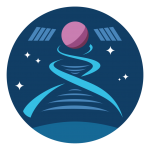
Events
The Space Medicine and Life Sciences Project Group partners with events globally to promote networking and collaboration opportunities for SGAC members. Developing more space medicine related streams at events within and outside SGAC will help bring visibility to all the exciting development and research in this area. This page provides a highlight of events from around the world. You can also follow the #events-feed on our Slack platform to keep up-to-date on all space medicine and life sciences related events.


